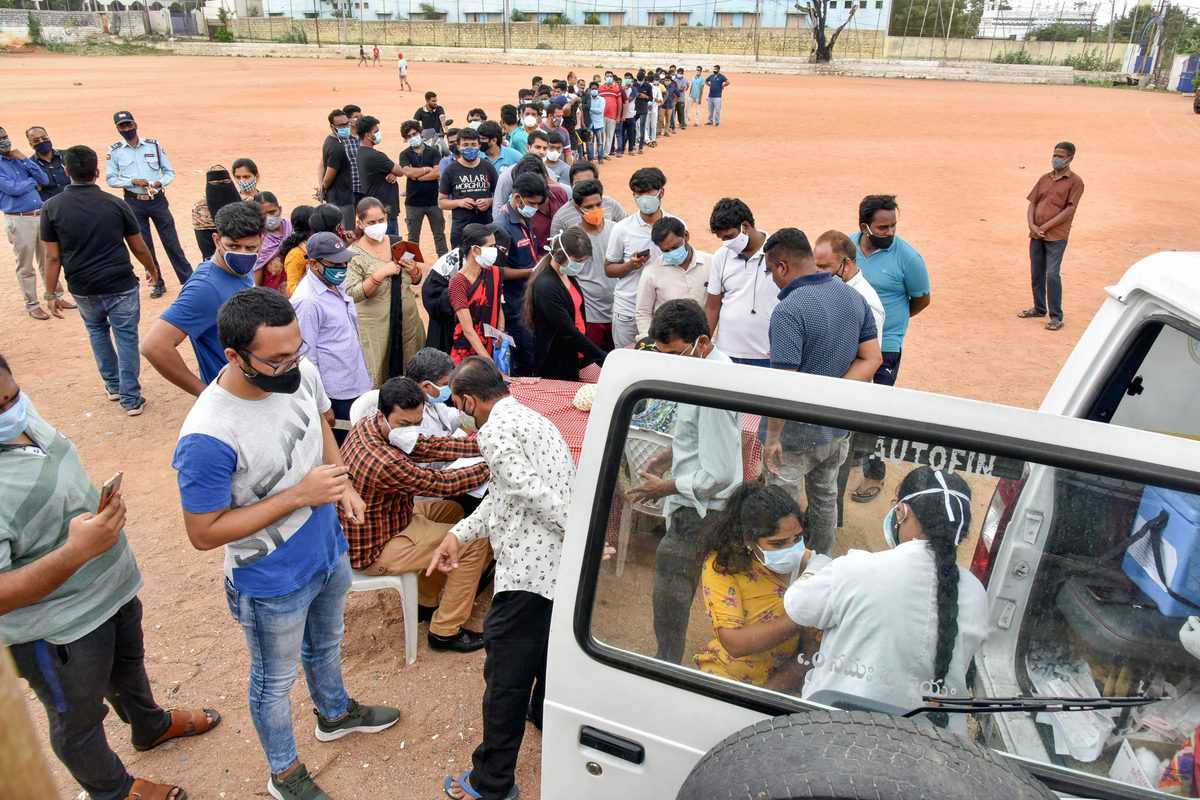
The Indian drug regulator’s nod to ZyCoV-D, the first vaccine against COVID-19, which is claimed to be effective for children above 12 years and all adults, could well mark an important milestone in managing the pandemic.
The Ahmedabad-based, Zydus Cadila, which has indigenously developed it says, it’s the world’s first human DNA vaccine (Deoxyribonucleac acid) against COVID-19. It has gone through human trials of over 28,000 people, including over a 1000 adolescents between ages 12-18, with encouraging results.
With this, India now has half a dozen vaccines which have been given the emergency authorisation by the Drug Controller General of India (DGCI). It means both access and growing numbers of vaccines. Covaxin, Covishield, Sputnik V, Moderna and Jansen are the ones that the Regulator has okayed so far.
India steps on the Accelerator
Armed with the widening choice the country’s vaccination drive has started gathering momentum in the past two weeks. On August 27, a major milestone of one crore jabs on a single day was achieved.
As per the latest data, India has administered the vaccine to over 635 million people, with at least one dose to 52 percent of its above 18 population of 945 million and two doses to nearly 15 percent.
In April, the country, after exporting 66 million doses to around 100 countries was forced to stop, in view of the huge spike in cases. The nation was caught in a pathetic situation of shortage both on the Oxygen front to immediately fight the viral outbreak and vaccines to protect in the long term.
After facing all round criticism for its mishandling both at the Union and States level, the Narendra Modi Government got its act together by devising a centralised plan of procurement, distribution and pricing mechanism. The manufacturers—Serum Institute of India (SII), (Covishield) and Bharat Biotech (Covaxin), were given orders and financial support to scale up production and supply. Simultaneously, approvals were given to the Russian, Sputnik V, then to Modena (Cipla to import and the make later) and Johnson & Johnson (Jansen), both from the US and now Cadila Healthcare(ZyCoVD).
These steps have ensured a doubling of production capacities. Parallely, the concerted efforts by states led to the immunisation programme gathering pace. Though, the task ahead is still daunting with more than a billion doses to be administered.
The third wave & vaccine scenario
With infections again rising slowly and experts warning of a possible third wave from September through October, the government is targeting to produce over a billion doses between September to December.
Sputnik V, Moderna, Jansen and ZyCoV D will supplement to the huge rise in production of Covishield by SII and Covaxin by Bharat Biotech, through their enhanced and additional capacities. The possibilities of a couple of more vaccines joining the offerings too are bright.
The DNA based ZyCoV D vaccine developed by Zydus Cadila with the support of the Department of Biotechnology through the Mission CoViD Suraksha is based on the Plasmid DNA Platform.
It is the first to be targeting the 12 to 18 age group too. Therefore, it’s significance is high as several state governments are toying with the idea of opening schools and colleges from September or some have already done so.
Plasmids are ring like pieces of DNA that have the capacity to self replicate. They are modified to encode the spike protein of the SARS-CoV-2 virus and delivered inside the human cells. This helps in triggering an immune response by producing antibodies.
It is a three-dose vaccine, given 28 days apart, but the company plans to seek approval for a two-dose regimen. With price, yet to be determined, indications are it will be available by the end of September.
Another novelty of this vaccine is the painless manner of its administration using a needle-free applicator. It is given intradermally. The applicator pushes the necessary quantity of the vaccine into the skin at very high pressure and delivers it within a fraction of a second. The other vaccines are intra muscular or the vaccine is injected into the muscles using a needle. According to the company’s plans it would manufacture 10-12 crore doses of the vaccine per annum.
In contrast, the indigenously developed Covaxin by Bharat Biotech and the National Institute of Virology (NIV) is based on an inactivated Sars-CoV 2 virus. Once injected, it stayed in the cells and helps the immune system to respond with antibodies when infected.
The Covishield, Sputnik V and J&Js Jansen use the viral vector platform or an adenovirus (common cold virus) modified suitably to encapsulate the genetic code of the Sars-CoV 2 spike protein.
The Moderna and Pfizer vaccines are derived from mRNA (messenger ribonucleac acid) Platform. It’s a new and untested technology for vaccines. It uses the generic code of a single spike protein of the virus, which is injected into the patient. The cells will be able to mass produce the antibodies triggering an immune response.
One Indian company, Gennova Biopharmaceuticals too is in an advanced stage of testing the mRNA vaccine it has developed indigenously. It has got approvals for large scale clinical trials to establish efficacy after reporting good results in early stage trials.
Somasekhar Mulugu, former Associate Editor & Chief of Bureau of The Hindu BusinessLine, is a well-known political, business and science writer and analyst based in Hyderabad

